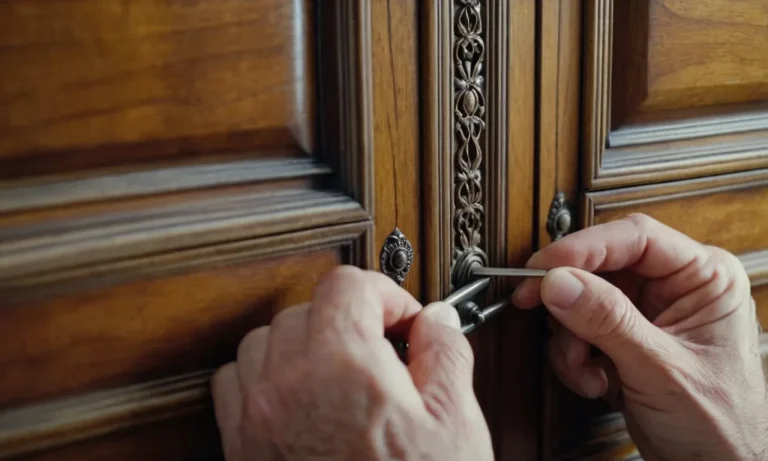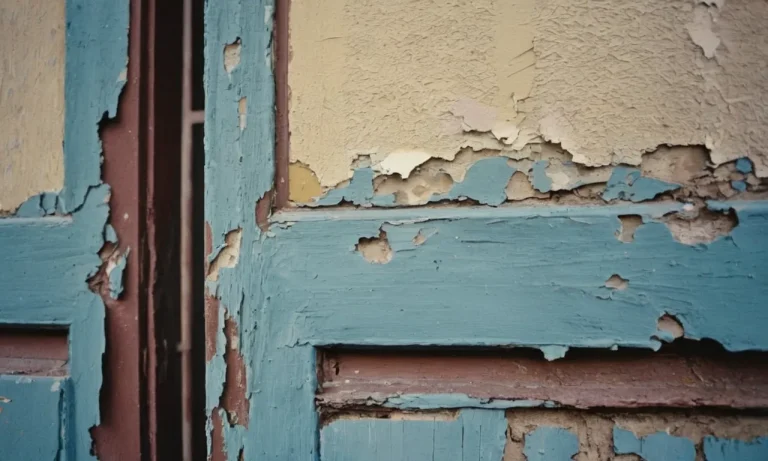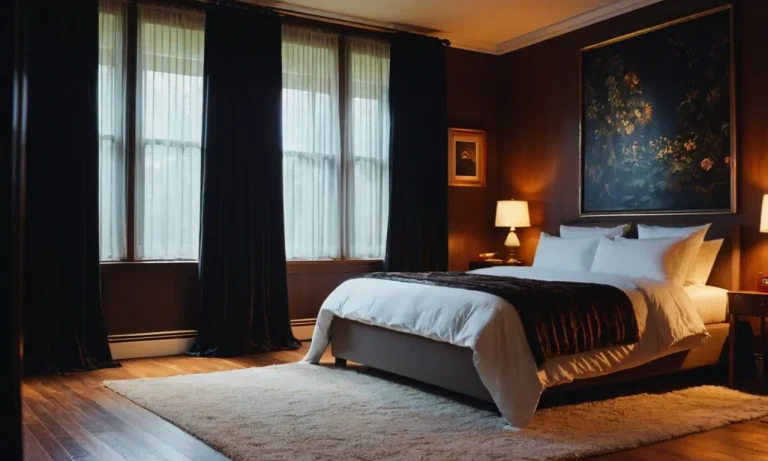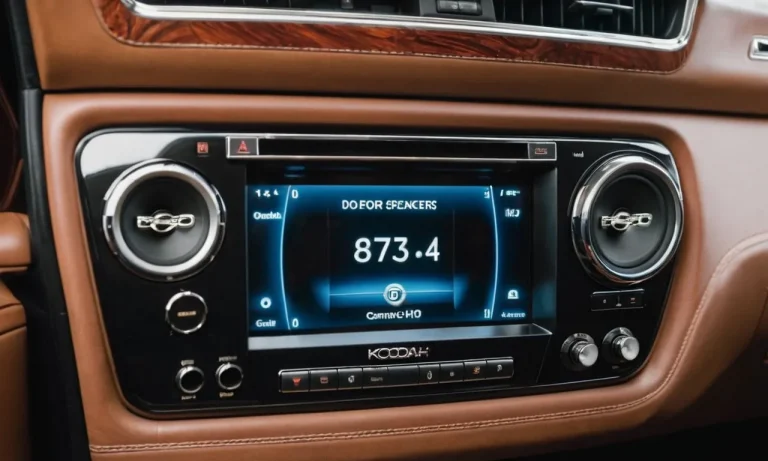Epoxy Floor Price Per Square Foot: A Detailed Guide
Installing an epoxy floor can greatly enhance the look and durability of any space. If you’ve been thinking about getting epoxy floors installed in your home or business, one of the first questions you probably have is how much it costs.
If you’re short on time, here’s a quick answer to your question: On average, epoxy flooring costs $3-$9 per square foot for materials and installation. The total cost depends on the type of epoxy used, how many coats are applied, additional prep work needed, and more.
In this comprehensive guide, we’ll break down everything you need to know about epoxy floor pricing per square foot. You’ll learn about the different types of epoxy floors, what factors impact the cost, price ranges, and money-saving tips.
What Are Epoxy Floors?
Epoxy floors are a type of flooring that is made from a combination of epoxy resin and a hardener. This mixture creates a durable and strong material that is ideal for high-traffic areas. Epoxy floors are commonly used in commercial and industrial settings, but they are also becoming popular in residential properties.
Definition and Overview
Epoxy floors are created by applying multiple layers of epoxy resin to a prepared concrete surface. The resin is poured onto the floor and then spread evenly with a squeegee or roller. Once the epoxy has been applied, it needs to cure for a specific amount of time to harden and create a durable surface.
Epoxy floors are known for their high shine and smooth finish. They can be customized with different colors, patterns, and textures to create a unique and visually appealing look. The seamless nature of epoxy floors makes them easy to clean and maintain, which is why they are favored in areas where cleanliness is crucial, such as hospitals and laboratories.
Benefits and Drawbacks
Epoxy floors offer several benefits that make them a popular choice for many applications. One of the main advantages is their durability. Epoxy floors are resistant to stains, chemicals, and abrasion, making them ideal for areas that experience heavy foot or vehicle traffic.
They are also highly resistant to moisture, making them suitable for areas prone to spills or high humidity.
Another benefit of epoxy floors is their versatility. They can be customized to fit any design aesthetic, from sleek and modern to rustic and industrial. Epoxy floors can also be used to create decorative effects, such as metallic finishes or terrazzo-like patterns.
However, there are also a few drawbacks to consider when choosing epoxy floors. One is the initial cost. Epoxy floors can be more expensive to install compared to other flooring options. Additionally, the installation process can be time-consuming, as it requires proper surface preparation and curing time.
Types of Epoxy Floors
There are different types of epoxy floors available, each with its own characteristics and applications. Some common types include:
- Self-leveling epoxy floors: These floors are designed to create a smooth and level surface, even on uneven substrates. They are commonly used in commercial and industrial settings where a flat and seamless finish is desired.
- Epoxy mortar floors: These floors are highly durable and are often used in heavy-duty industrial environments. They are made by mixing epoxy resin with sand or quartz to create a strong and impact-resistant surface.
- Decorative epoxy floors: These floors are designed to be visually appealing and can incorporate various colors, patterns, and textures. They are commonly used in retail spaces, restaurants, and residential properties.
It’s important to choose the right type of epoxy floor based on the specific requirements of your space. Consulting with a professional contractor or epoxy flooring specialist can help ensure you make the best choice for your needs.
Factors That Influence Epoxy Flooring Cost
Type of Epoxy Used
The type of epoxy used is one of the primary factors that influence the cost of epoxy flooring. There are different types of epoxy available in the market, each with its own price range. Some epoxies are specifically designed for high-traffic areas and are more durable, while others are more budget-friendly but may not have the same level of durability.
It’s important to choose the right type of epoxy that suits your specific needs and budget.
Floor Preparation Needed
The condition of your floor prior to applying epoxy can also affect the overall cost. If your floor requires extensive preparation such as grinding, patching, or repairing cracks, it will add to the cost of the project.
The level of preparation needed will depend on the condition of your floor and the desired outcome. It’s important to assess the condition of your floor before starting the epoxy flooring project to ensure accurate cost estimates.
Coating Thickness
The thickness of the epoxy coating can impact the cost of the project. Thicker coatings are generally more expensive as they require more materials and labor. However, thicker coatings offer better durability and can withstand heavy foot traffic and other types of wear and tear.
The choice of coating thickness will depend on the intended use of the floor and the level of durability required.
Additional Customizations
If you want to add customizations to your epoxy floor, such as decorative flakes, metallic pigments, or logos, it will increase the overall cost. These additional customizations require extra materials and labor to achieve the desired aesthetic.
However, they can create a unique and visually appealing floor that adds value to your space.
Hiring a Professional vs. DIY
Another factor that can influence the cost of epoxy flooring is whether you hire a professional or opt for a DIY approach. Hiring a professional epoxy flooring contractor can ensure a high-quality installation, but it comes at a higher cost.
On the other hand, opting for a DIY project can save you money, but it requires proper knowledge, skills, and tools to achieve satisfactory results. Consider your budget, time, and skill level before deciding whether to hire a professional or tackle the project yourself.
Epoxy Floor Price Ranges
When it comes to installing an epoxy floor, it’s important to have a clear understanding of the price ranges you can expect. The cost of an epoxy floor can vary depending on several factors, including the size of the area, the complexity of the design, and the quality of materials used.
Here we will break down the three main price ranges for epoxy floors: low-end, mid-range, and high-end.
Low-End: $3-$5 Per Sq. Ft.
If you’re on a tight budget but still want to enjoy the benefits of an epoxy floor, the low-end price range is a great option. Typically costing between $3 and $5 per square foot, this range is ideal for those looking for a basic epoxy floor without any intricate designs or special finishes.
While the materials used may not be as high-quality as the more expensive options, a well-installed low-end epoxy floor can still provide durability and protection for your concrete slab.
Mid-Range: $5-$7 Per Sq. Ft.
In the mid-range price bracket, you can expect to pay between $5 and $7 per square foot for your epoxy floor. This range offers a good balance between affordability and quality. With the mid-range option, you can enjoy more customization options, such as different colors and finishes, to suit your personal style.
The materials used in this range are generally of higher quality, providing increased durability and longevity.
High-End: $7-$9+ Per Sq. Ft.
If you’re looking for a top-of-the-line epoxy floor with all the bells and whistles, the high-end price range is for you. Expect to pay $7 or more per square foot for a high-end epoxy floor. This range offers the highest level of customization and the finest quality materials available.
From intricate designs and patterns to special finishes like metallic or 3D effects, the possibilities are endless. A high-end epoxy floor is not only a durable and long-lasting option but also a stunning addition to any space.
It’s important to note that these price ranges are just estimates and can vary depending on your location and the specific details of your project. It’s always recommended to get quotes from multiple contractors and compare them to ensure you’re getting the best value for your money.
To learn more about epoxy floor pricing and installation, you can visit websites like HomeAdvisor or Thumbtack for more information.
Cost Saving Tips for Epoxy Floors
Choose a Simple Design
When it comes to epoxy floors, there are countless design options available. However, opting for a simpler design can help you save money. Intricate patterns or customized designs can significantly increase the cost of materials and labor.
By choosing a simple and straightforward design, you can achieve a beautiful epoxy floor without breaking the bank.
Opt for Fewer Coats
The number of epoxy coats applied to your floor can also impact the overall cost. While multiple coats can enhance the durability and longevity of the floor, they can also increase the expenses. Consider discussing with your contractor the minimum number of coats required to achieve the desired results.
This way, you can save on the cost of extra materials and labor.
Buy Epoxy in Bulk
If you’re planning a large epoxy flooring project, buying epoxy in bulk can help you save money. Purchasing larger quantities of epoxy can often result in discounted prices per gallon. It’s worth reaching out to suppliers or manufacturers to inquire about bulk purchasing options.
By doing so, you can reduce the overall cost of materials for your epoxy floor.
Hire for Installation Only
While it may be tempting to hire a contractor for the entire epoxy flooring process, you can save money by hiring them for installation only. Contractors often charge additional fees for material procurement and handling.
By taking on the responsibility of purchasing the materials yourself, you can avoid these extra costs and potentially find better deals on materials.
DIY the Prep Work
Another way to save on the cost of epoxy flooring is by doing some of the prep work yourself. Preparing the surface, such as cleaning, sanding, and repairing any damages, can be time-consuming but can save you money.
However, it’s important to note that proper surface preparation is crucial for the success and longevity of your epoxy floor. If you’re not confident in your abilities, it’s best to leave this task to the professionals.
By following these cost-saving tips, you can achieve a stunning epoxy floor without breaking your budget. Remember to weigh the pros and cons of each tip and choose the ones that make the most sense for your specific project.
Frequently Asked Questions
How Much Does It Cost to Epoxy a Garage Floor?
The cost of epoxy flooring for a garage can vary depending on several factors. On average, the price per square foot ranges from $3 to $12. The size of the garage, the condition of the existing floor, and the type of epoxy system chosen all play a role in determining the final cost.
It’s important to note that these prices typically include both materials and labor. For a more accurate estimate, it’s best to consult with a professional contractor who can assess your specific needs and provide you with a detailed quote.
Is Epoxy Flooring Worth the Cost?
While epoxy flooring may initially seem more expensive than other flooring options, it offers numerous benefits that make it worth the investment. Epoxy floors are highly durable, resistant to stains, chemicals, and abrasion, and can withstand heavy foot and vehicle traffic.
They are also easy to clean and maintain, making them a popular choice for garages, warehouses, and industrial settings. Additionally, epoxy flooring can enhance the aesthetics of a space with its glossy, seamless finish.
Overall, the long-term durability and low maintenance requirements of epoxy flooring make it a cost-effective choice in the long run.
How Long Does Epoxy Flooring Last?
Epoxy flooring is known for its longevity and durability. When properly installed and maintained, it can last for many years. The lifespan of epoxy flooring can vary depending on factors such as the quality of the materials used, the level of foot and vehicle traffic, and the maintenance practices employed.
On average, epoxy floors can last anywhere from 10 to 20 years. However, with proper care and occasional reapplication of a topcoat, the lifespan can be extended even further. Regular cleaning and avoiding harsh chemicals or abrasive cleaners can help preserve the integrity and appearance of the epoxy floor.
Conclusion
Installing an epoxy floor in your home or business is a big investment, but the benefits often outweigh the costs. By understanding the average epoxy floor price per square foot and the factors that impact it, you can budget accordingly and decide if it’s the right flooring option for your needs.
For a high-quality epoxy floor installed by professionals, expect to pay around $3-$9 per square foot. The exact cost will depend on the specifics of your project. With smart planning and cost-saving tips, you can get great value from epoxy flooring that will enhance your space for years to come.







